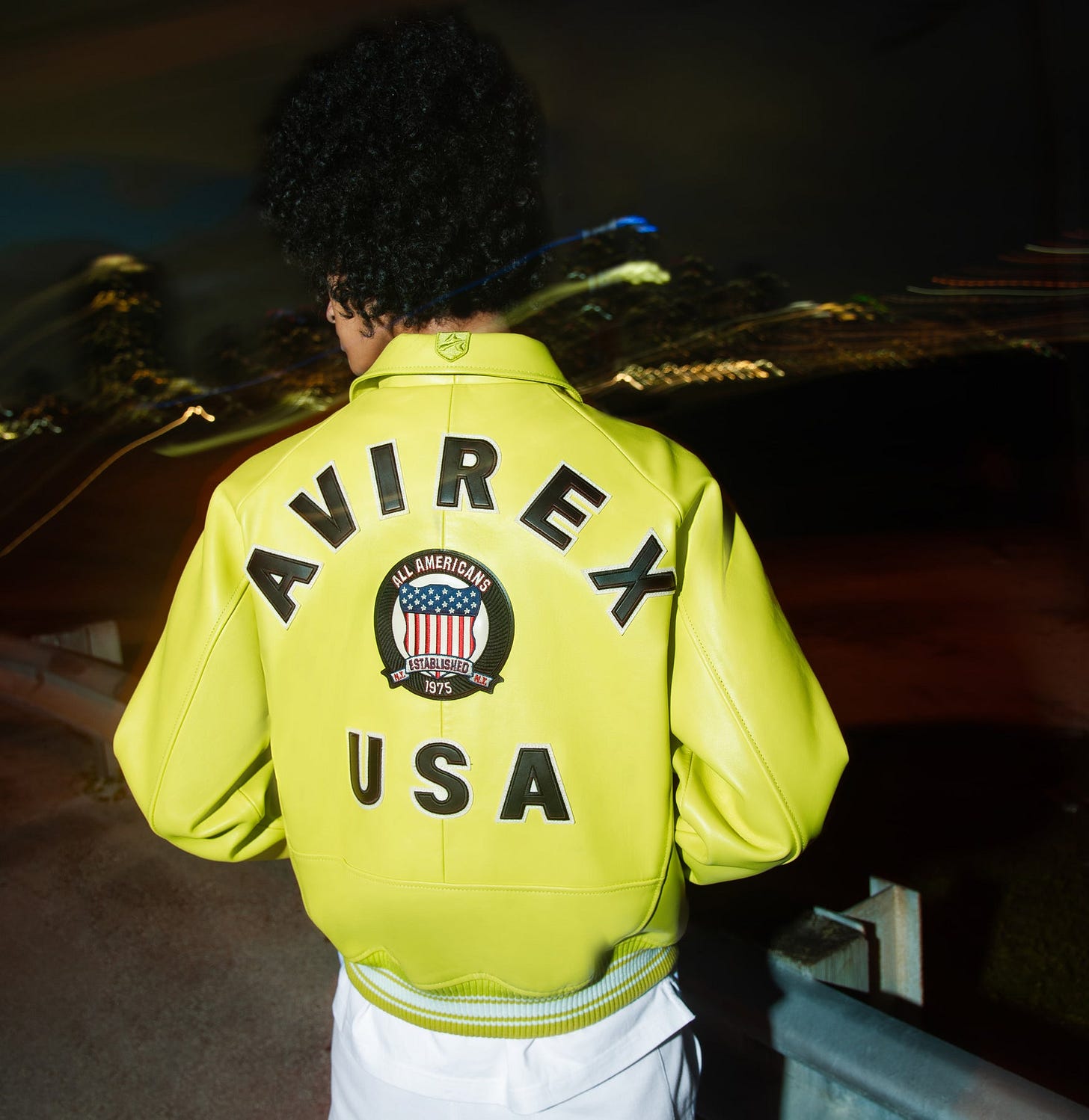Times Is Rough and Tough Like Leather
The influence of Avirex on '90s hip-hop style.
‘90s hip-hop style was largely characterized by the kind of gear you got from a proper outfitter. High fashion boutiques and specialty stores catering to the rap crowd were in their infancy, like James Jebbia and Mary-Ann Fusco’s UNION in New York, but for many rappers whose style was informed by the way drug dealers would floss, dudes running the corner often put their fits together from a mix of military surplus stores, neighborhood workwear shops, and the kind of mom-and-pops you’d find in many working-class neighborhoods.


